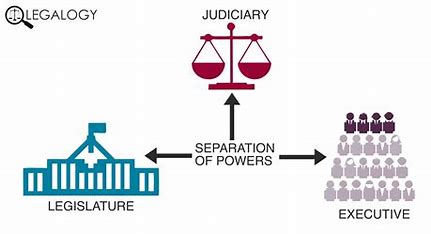Mukherjee J. rendered the first decision regarding the separation of powers in the case of Ram Jawaya Kapur v. State of Punjab. “The Constitution of India has not explicitly recognised the notion of separation of powers, but the functions and powers of all the organs have been appropriately separated,” he said in his conclusion. So, it would not be incorrect to claim that the Indian Constitution does not behold assumptions but rather operates in a flexible way taking the requirements of the nation into consideration. As a result, the administration has the authority to execute judicial functions within certain bounds and only when granted by the legislative. Yet, no organ should use its authority in ways that go beyond what is allowed.
The Supreme Court ruled in this case that because the roles played by the three organs are sufficiently distinct, it is not essential to apply the idea of separation of powers strictly. The separation of powers principle is not rigorously followed in India. The following clauses, in addition to Article 50, support the separation of powers: The President is allowed to use his executive authority in specific circumstances, according to Article 123 of the Constitution. The Constitution has provisions for the separation of the legislative and judicial branches of government in Articles 121 and 211, respectively. It indicates that laws cannot address the behavior of Supreme Court and high court judges. The Constitution’s Articles 122 and 212 state that judges are not permitted to delve into legislative processes. The judiciary and executive branches are separated under Article 361(4) of the Constitution. No court may hold the President or any governor of a state accountable for deeds or misbehavior done while performing or executing their official responsibilities, according to the constitution. It guards against excess and the misuse of power by a person or an institution. It will defend society from the capricious, irrational, and totalitarian powers of the state. All people’s liberties are upheld, and each task is delegated to the appropriate government organizations so they may complete it successfully.
“PRIME LEGAL is a full-service law firm that has won a National Award and has more than 20 years of experience in an array of sectors and practice areas. Prime legal fall into a category of best law firm, best lawyer, best family lawyer, best divorce lawyer, best divorce law firm, best criminal lawyer, best criminal law firm, best consumer lawyer, best civil lawyer.”


